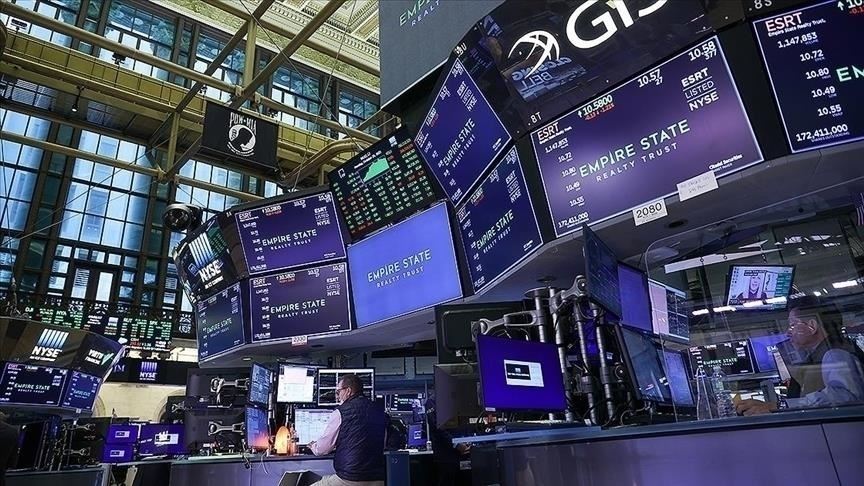In the global stock markets, where volatility increased due to the Russia-Ukraine tension last week, the selling pressure accelerated after the so-called administrations in eastern Ukraine under the control of pro-Russian separatists announced that the civilians in the region would be evacuated to Russia.
In the new week, with the news that US President Joe Biden agreed in principle to meet with Russian President Vladimir Putin, it was observed that risk appetite increased relatively, while indices in Europe started the day with an increase in futures. Across Asia, on the other hand, it is observed that the indices, which started the day with a sharp decline, as the concerns about the real estate market once again came to the top of the agenda, compensated for some of their losses with the softening geopolitical risk perception.
With the geopolitical risk perception, the barrel price of Brent oil, which saw its highest level since October 2014 with 95.4 dollars last week, stabilized at 91 dollars after falling to 88.7 dollars on Friday. The ounce price of gold, on the other hand, after rising to the highest level since May 2021 at $ 1,908 in the first hours of the day with the increasing demand for assets seen as safe-haven, decreased with the news that Biden and Putin could meet, and saw below $ 1,890.
In an environment of increased sensitivity to high inflation and increasing geopolitical risks, developments regarding the future of monetary policies continue to be in the focus of investors. While it was observed that the verbal guidance of bank officials gained momentum especially before the upcoming March meeting of the US Federal Reserve, Chicago Fed President Charles Evans said that high inflation requires the Fed to reposition its monetary policy significantly. New York Fed Bank President John Williams argued that there was little need for the bank to start the rate-raising cycle in a big push, but instead to raise rates "continuously" and adjust the pace if necessary.
With these developments, a sales-weighted course was followed in the New York stock market on Friday, while the Dow Jones index depreciated by 0.68 percent, the S&P 500 index by 0.72 percent and the Nasdaq index by 1.23 percent. On a weekly basis, the average loss in indices was 1.7 percent. The dollar index, which tested 96.2 on Friday, fell 0.3 percent to 95.8 levels today. There will be no trading in the US markets today due to Presidents' Day.
On the European side, geopolitical risks, the monetary policy guidance of the European Central Bank (ECB), which signals tightening, and energy prices continue to be the main agenda items. In this context, the statements of the ECB policy makers are expected to be decisive on the direction of the markets. While the FTSE 100 index depreciated by 0.32 percent in the UK, the DAX 30 index in Germany by 1.47 percent and the CAC 40 index in France by 0.25 percent on Friday, the decreases in the indices on a weekly basis reached an average of 2 percent. The euro/dollar parity, which fell to the levels of 1.1280 last week, rose again to the levels of 1.1360 today.
On the Asian side, after Chinese real estate developer Zhenro made a statement that he could not meet his obligations, the company's shares were closed on the stock exchange. On the other hand, according to the data announced today in Japan, the manufacturing industry Purchasing Managers Index (PMI) decreased by 2.5 points to 52.9 in February compared to the previous month, and the PMI for the services sector decreased by 4.9 points to 42.7.
With these developments, some of the losses were compensated by the relatively increased risk appetite in Asian stock markets, which started the day with a decline. Near the close, the Shanghai composite index fell 0.4 percent and the Nikkei 225 index fell 0.7 percent.
Domestically, BIST 100 index in Borsa Istanbul, which was mostly buying on Friday, finished the day at 2,032.44 points, gaining 1.12 percent value. Dollar/TL started the new week at 13,6150 at the opening of the interbank market, after closing at 13.6565 with an increase of 0.5 percent on Friday.
Analysts stated that the news flow regarding the Russia-Ukraine crisis remained at the center of the agenda, adding that although the tension decreased, the risks were still on the table, so investors should act cautiously.
Stating that the search for direction in the markets will come to the fore due to the closed US markets and the weak data agenda today, the analysts said that the verbal guidance of the central bank officials will also be followed closely.
Analysts stated that on the data agenda, the Producer Price Index (PPI) in Germany and the manufacturing industry and service sector PMI in Europe came to the fore.
The data to be followed in the markets today are as follows:
10.00 Turkey, February Financial Services Confidence Index
10.00 Turkey, January abroad PPI
10.00 Germany, January PPI
11.30 Germany, February manufacturing and services PMI
12.00 Eurozone, manufacturing and services PMI for February
12.30 UK, February manufacturing and services PMI











Comments
No comment yet.